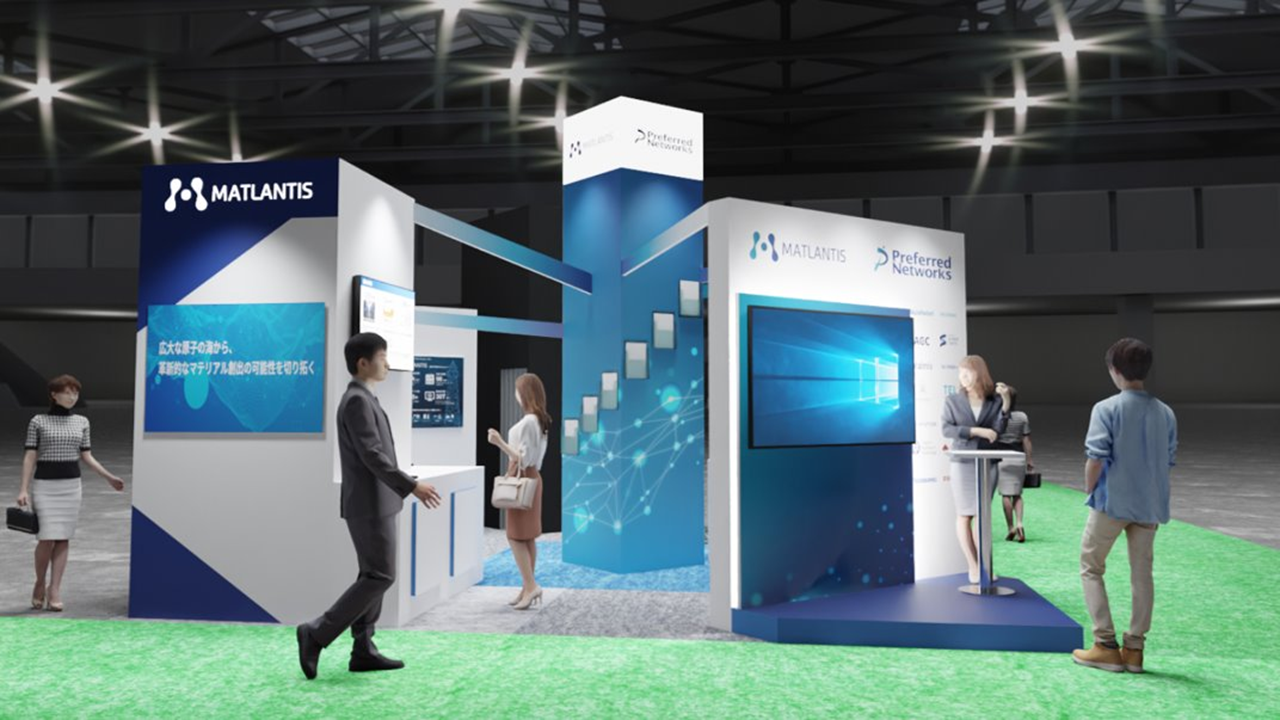Video Streaming
User Community
Online2024.4.21 (JPN)
Presentation videos and materials from the 2nd Matlantis User Conference now available
PFCC held the second Matlantis User Conference online on April 21, 2023, where two users presented specific use cases. A total of 144 people participated on the day.
Below we have made available the recorded videos and presentation materials for each talk at the Matlantis User Conference.
Matlantis used by organic materials researchers
Speakers
Tokyo Institute of Technology, School of Materials and Chemical Technology, Materials Course, Hayakawa Laboratory, Assistant Professor, Dr. Kan Hatakeyama
movie
Materials
https://www.slideshare.net/Matlantis/2matantis-user-conference20230421
Overview
This presentation will discuss the expectations and awareness of issues that experimental researchers specializing in the synthesis and measurement of functional polymers have when using the AI molecular simulator Matlantis. The features of Matlantis will be considered from an experimentalist's perspective, with comparisons to DFT, MD calculations, and even open source AI simulators. As examples, in addition to structural calculations of molecular assemblies, the accuracy and processing speed of calculations of various physical properties (density, diffusion coefficient, viscosity, thermal conductivity, etc.) that can be estimated by this software will be shown for actual materials. In addition, the status of collaboration with machine learning to estimate structures and physical properties that are difficult to calculate even with Matlantis will be reported.
Simulation of dynamics under electric field using partial charges of PFP
Speakers
Assistant Professor, Shinshu University Research Institute for Materials Science
movie
Materials
https://www.slideshare.net/Matlantis/2matlantis-user-conference20230421
Overview
The behavior of materials in an external electric field, such as ionic conduction under an electric field and the formation of an electric double layer at an electrode interface, is interesting from a physicochemical perspective and is also important for applications such as secondary batteries and capacitors. These can be analyzed by molecular dynamics simulations, but it is difficult to calculate on a sufficient time scale using first-principles calculations such as density functional theory (DFT) for intermolecular interactions because of the high computational cost. In addition, the use of conventional empirical potentials has issues such as the low versatility of parameters, which limits the applicable material systems, and the difficulty of modeling including chemical reactions. Therefore, we aimed to solve the problem by applying PFP, a general-purpose neural network potential, improving the balance between calculation speed, versatility, and accuracy, while providing interactions with an external electric field based on the partial charge estimation. In this presentation, we will introduce such an extension of Matlantis to dynamics under an electric field.
公開日:2023.05.19



